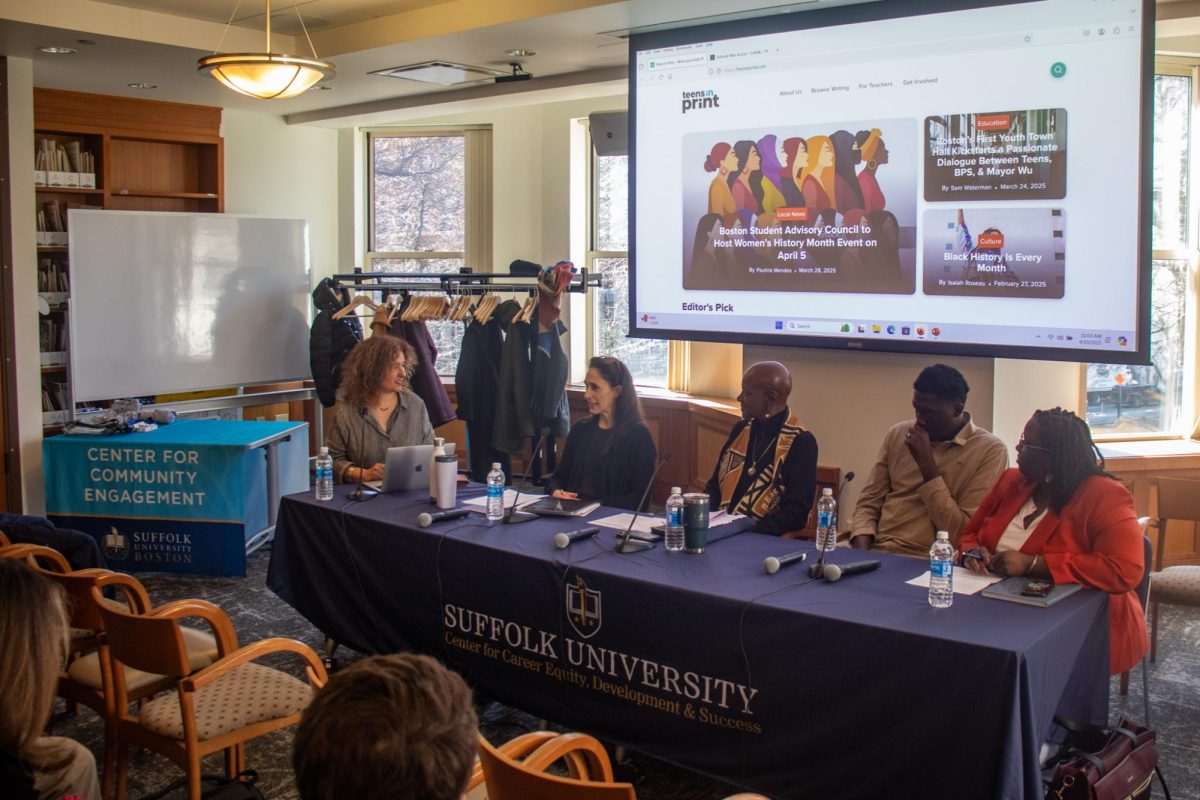Article by: Jeff Fish
Over the years, Suffolk has worked to reduce waste and energy consumption by modifying its buildings and educating the student body on maintaining a greener lifestyle. These feats have paid off financially, environmentally, and have earned the school recognition by the Princeton Review, by naming Suffolk as one of the 286 greenest schools in the country.
Other Boston area schools on the list include Harvard College, Boston College, Boston University, Simmons College, and Tufts University.
The report was based off of a survey sent out by the Princeton Review. “It was very exciting when we found out that our responses had placed us within the top 286 schools in the country for our environmental initiatives,” said Campus Sustainability Coordinator Erica Mattison. “We work very hard to try to be innovative and to be continually improving our program and to find out that that earned us a spot in the Princeton Review Guide was great news.”
According to the Princeton Review Guide, Suffolk reduced its energy consumption last year by nine percent from the previous year and water consumption by eight percent, “amounting to approximately 650,000 gallons of water.”
Among measures Suffolk has taken to reduce energy and water consumption are the installation of low flow shower heads, toilets and faucets, as a well as the conversion of the Sawyer Buildings boiler from electricity to natural gas. Suffolk has also installed dual flush toilets in some buildings with the option to flush up for liquid waste using only one third of the water.
The Princeton Review gave a nod to Suffolk’s goal of achieving at least a silver LEED certification for all new building projects. The 10 West Residence Hall achieved a gold LEED certification. Mattison said she hopes to also achieve the gold for the new Modern Theatre project, which will have features like a body heat sensor connected to lights and heating, so that when a student leaves his or her dorm room less energy will be wasted.
It will also have low VOC (Volatile Organic Compound) products like paint, adhesive, and carpeting. “[The paint] doesn’t have that chemical smell,” said Mattison. “And we buy our furniture and material regionally (mostly from Canada). Structural materials like steel are used from recycled content and earn points [for LEED certification.]”
A major component to Suffolk’s sustainability plan was the installation of a tool in the Fenton building called an Energy Management System, which allows building managers to monitor how efficiently the equipment in a building is working.
“[The Energy Management System] is a kind of a major piece that you will see in most energy efficiency programs anywhere because otherwise thing are very manual,” said Mattison. “You don’t necessarily know there’s a problem with something. You don’t necessarily know if something’s running 24 hours a day that doesn’t need to be, but with an Energy Management System, it enables you to do that. Basically it gives you remote control over certain building functions.”
Mattison acknowledged that the Building Management System is “not cheap to do—it costs a couple hundred thousand dollars—but if it enables you immediately to start reducing your energy consumption by 20 percent, that’s a good thing, and it makes a lot of sense to begin testing in those types of technologies. It’s already saving money.” In Fenton alone electricity costs went down by $25,000 from 2008 to 2009 and went down $400,000 University wide. Mattison said she hopes to have more Energy Management Systems installed in the other buildings.
“Sometimes these choices that we make when we’re trying to do a greener building cost more than something that’s not as environmental, so it’s really nice to see that if you do have an efficient building and you operate it efficiently that you can save money, and some of those choices that you made that did cost more money are basically offset by the fact that you’re running a more efficient building,” said Mattison. “Those decisions that you make up front are very important because that decides how the building is going to be operated for decades to come.”
In addition to the equipment used to run the buildings efficiently, Mattison said it is also important to educate students on how to live greener lives. Starting in the fall Suffolk will have Eco Ambassador Program where students educate their peers throughout the campus, in addition to the Eco Rep Program that was implemented last year in the dorms. Four students have already been hired for the Eco Ambassador positions, according to Mattison.
Suffolk has also received recognition from the Waste Wise Program in Massachusetts, established by the Department of Environmental Protection (DEP). Suffolk was chosen as the program’s 2009 partner of the year because of its “waste reduction and recycling initiatives and achievements,” according to Mattison, making it the first higher education institution to receive the award that has gone to businesses, supermarkets, and hotels in the past.
“We continue to receive recognition for our work and we just had our best performance yet in the National Recycle Mania Competition,” said Mattison.













